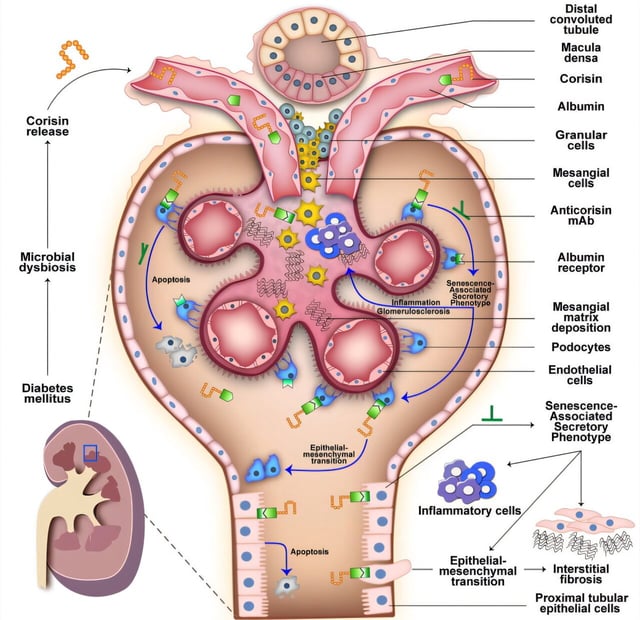Overview
- Peer-reviewed results in Nature Communications from teams in Illinois and Japan identify corisin, a Staphylococcus-derived peptide, as a driver of diabetic kidney scarring.
- Screening of patient blood and urine found elevated corisin levels in diabetic kidney disease, with blood concentrations correlating with fibrosis severity.
- Experiments and simulations show corisin binds albumin in the bloodstream, detaches in the kidney, enters renal cells, and triggers inflammation, cell death, and fibrosis.
- In mouse models, a neutralizing anticorisin antibody markedly slowed kidney damage progression, though no such therapy is approved for humans.
- Researchers plan larger-animal testing, hold a joint invention disclosure on corisin antibodies, and note the unmet need for treatments that halt or reverse kidney scarring in diabetes.
